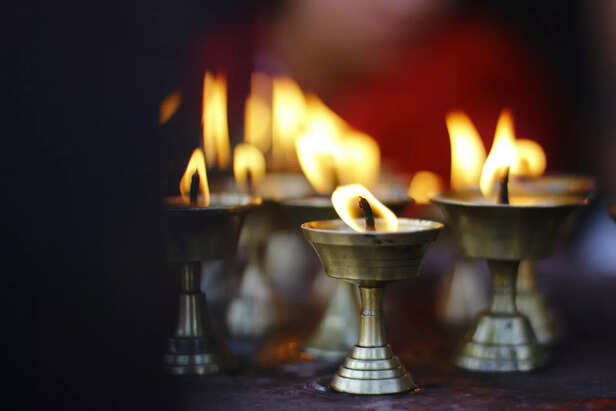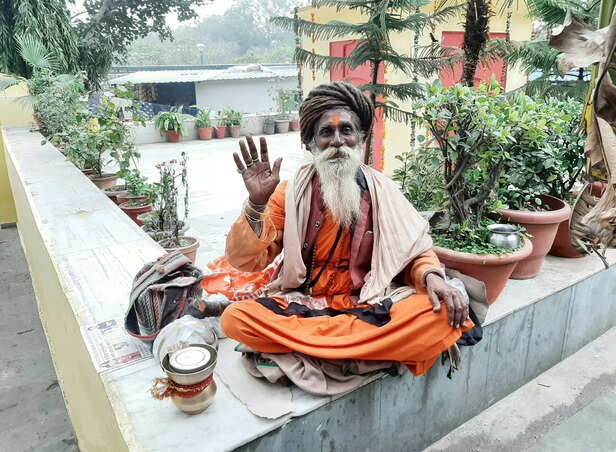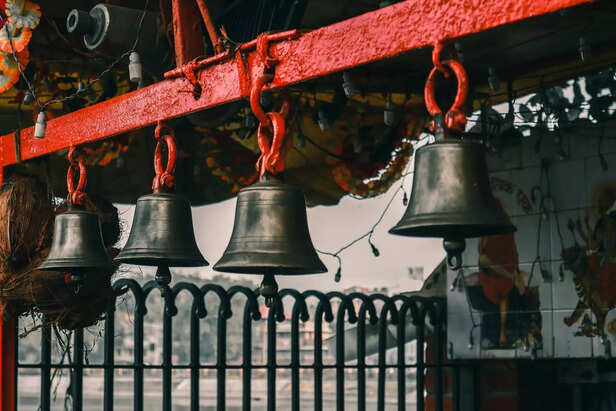Why Narada, the Messenger of the Gods, Is Never Worshipped In India
Riya Kumari | Aug 30, 2025, 23:58 IST
Narada Muni
( Image credit : AI )
In the tapestry of Hindu thought, Narada Muni occupies a unique place, not as an object of formal worship, but as an embodiment of pure devotion, spiritual wisdom, and divine communication. Narada is celebrated as the perfect bhakta (devotee), a being entirely dedicated to Vishnu and devoid of ego or personal desire.
In the vast tapestry of Hindu thought, Narada Muni occupies a singular place. He is not a deity invoked through rituals or adorned with offerings. He is a living principle, devotion in motion, wisdom in action, a bridge between the human and the divine.
1. Devotee, Not Deity

Narada is celebrated as the perfect bhakta, entirely devoted to Vishnu, free from ego or personal desire. Texts like the Srimad-Bhagavatam and the Narada Bhakti Sutra portray him not as a god to be worshipped, but as an example of selfless devotion. His teaching that "bhakti is its own fruit" reminds us that true devotion is internal, flowing from the heart rather than from ritual.
As a manasaputra, born from Brahma’s mind, Narada’s very existence is that of a divine messenger. He is meant to guide, provoke, and awaken, not to be the object of devotion himself.

Across the Puraṇas, the Bhagavata Puraṇa, and the epics, Narada emerges as a cosmic instigator. He provokes reflection, challenges complacency, and nudges kings, sages, and even gods toward deeper understanding. He travels between realms, sowing lessons, igniting devotion, and revealing truths often hidden by comfort and pride.
Narada’s role is not to command worship but to awaken it in others, through insight, example, and sometimes mischief.

Though deeply respected, Narada is never formalized in temple rituals. Hymns praise his humility, purity, equanimity, and mastery over the senses. Yet ritual worship requires a deity or icon, Narada’s identity as a devotee and messenger resists such representation. His life itself is a living puja.

Narada’s teachings consistently emphasize devotion over ritual. True bhakti is unmotivated by rewards, born of inner surrender and constant remembrance of the divine. His presence in texts like the Narada-smṛti also shows his intellect and insight into dharma, law, and ethics, extending his wisdom beyond devotional spheres.

Narada’s story invites us to ask:
1. Devotee, Not Deity

Pray
( Image credit : Unsplash )
Narada is celebrated as the perfect bhakta, entirely devoted to Vishnu, free from ego or personal desire. Texts like the Srimad-Bhagavatam and the Narada Bhakti Sutra portray him not as a god to be worshipped, but as an example of selfless devotion. His teaching that "bhakti is its own fruit" reminds us that true devotion is internal, flowing from the heart rather than from ritual.
As a manasaputra, born from Brahma’s mind, Narada’s very existence is that of a divine messenger. He is meant to guide, provoke, and awaken, not to be the object of devotion himself.
2. Catalyst, Guide, Instigator

Guide
( Image credit : Unsplash )
Across the Puraṇas, the Bhagavata Puraṇa, and the epics, Narada emerges as a cosmic instigator. He provokes reflection, challenges complacency, and nudges kings, sages, and even gods toward deeper understanding. He travels between realms, sowing lessons, igniting devotion, and revealing truths often hidden by comfort and pride.
Narada’s role is not to command worship but to awaken it in others, through insight, example, and sometimes mischief.
3. Reverence Without Ritual

Diya
( Image credit : Unsplash )
Though deeply respected, Narada is never formalized in temple rituals. Hymns praise his humility, purity, equanimity, and mastery over the senses. Yet ritual worship requires a deity or icon, Narada’s identity as a devotee and messenger resists such representation. His life itself is a living puja.
4. Bhakti Over Ceremony

Surrender
( Image credit : Unsplash )
Narada’s teachings consistently emphasize devotion over ritual. True bhakti is unmotivated by rewards, born of inner surrender and constant remembrance of the divine. His presence in texts like the Narada-smṛti also shows his intellect and insight into dharma, law, and ethics, extending his wisdom beyond devotional spheres.
5. Why He Is Never “Worshipped”

Bells
( Image credit : Unsplash )
- Role vs. Status: Narada is a servant of the divine, not an embodiment of cosmic authority.
- Devotion Without Ceremony: His path calls for internal transformation, not external performance.
- Universal Respect: Reverence for Narada exists everywhere, but it does not translate into temples or pujas.
- Messenger, Not Master: He guides without seeking recognition, embodying humility and selfless service.
Reflections to Carry Forward
- Can devotion exist without ritual?
- Can wisdom and humility be forms of worship in themselves?
- Might honoring Narada mean choosing selfless love over performance, insight over ego, devotion over show?
